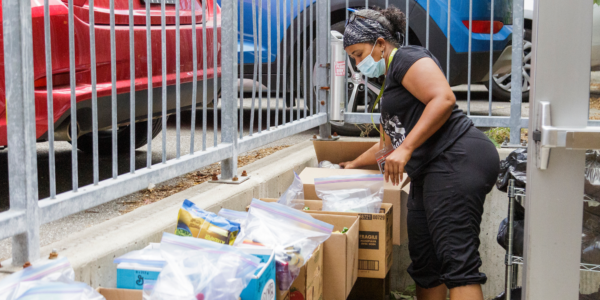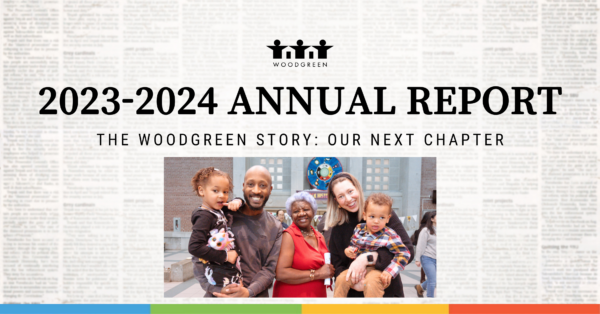The lack of affordable workforce housing is costing the Greater Toronto Area up to an estimated $7.98 billion per year, or roughly $37.9 every 5 years, according to a report released last month by WoodGreen and the Toronto Region Board of Trade (the “Board”), in partnership with TD.
The report, entitled The Cost of Inaction, details the multitude of economic and social factors implicated in the rising costs associated with a lack of affordable housing for the region’s most essential workers, including nurses, cashiers, shelter staff, custodians, transit operators and restaurant workers.

The Cost of Inaction wraps up a three-part report series on housing a generation of essential workers, produced by WoodGreen and the Board, to underscore the gravity of issues the Toronto region is anticipated to face - and is already facing – due to the increasing lack of affordable housing for the city’s essential workforce.
WoodGreen and the Board introduced this report series with three key goals in mind:
- to draw attention to the pressing need for affordable workforce housing;
- to identify solutions that provide housing for essential workers; and
- to encourage key partners to act on this urgent issue.
Each report in this series focused on different aspects of the affordable housing crisis for essential workers. With the problem of limited affordable workforce housing clearly defined in the first report, and possible solutions to the problem examined in the second; the final report switches gears and delves into the economic and social costs, producing a staggering estimate of $8 billion in economic costs for the Toronto region each year, if nothing is done.
Factors adding to the economic costs outlined in the report include employee turnover and additional recruitment costs; decreased local consumption and labour market success; and increased out-migration from Toronto.
People have already begun to relocate from the Toronto Region to find access to more affordable living. Bold action will be needed to prevent these economic consequences, like the domino effects of large-scale relocation, from further exacerbating.
In addition to the economic costs, the third and final report also highlights the growing social costs and impacts on society of inaction on affordable workforce housing, such as worsening gender equality, quality of education, and reduced caregiver support for Toronto’s ageing population.
As these impacts become more pronounced, more and more residents will undoubtedly be pushed out of the city. The report concludes with several recommendations for collective action among key decision-makers, including,
- Scaling workable models;
- Expanding the business case; and
- Implementing a workforce housing strategy.
Even though affordable workforce housing is only one piece of the oversized puzzle in addressing Toronto’s housing crisis, it is an essential one. WoodGreen and the Board invite readers of the report to learn more about steps that can - and should - be taken to ensure the region’s essential workforce can remain within our cities.
The Cost of Inaction is the final part of a three-part report series, jointly developed by WoodGreen Community Services and the Toronto Region Board of Trade, and sponsored by TD. The first installment, Defining the Problem, focused on exploring the challenge and solution in affordable workforce housing and looked at best practices from other jurisdictions in efforts to inform how the Toronto region can accelerate the development of workforce housing. The second report, Modelling Solutions, examined existing and emerging housing model case studies to gauge whether these models have the potential to be scaled to meet the Toronto region’s essential workforce housing needs.





